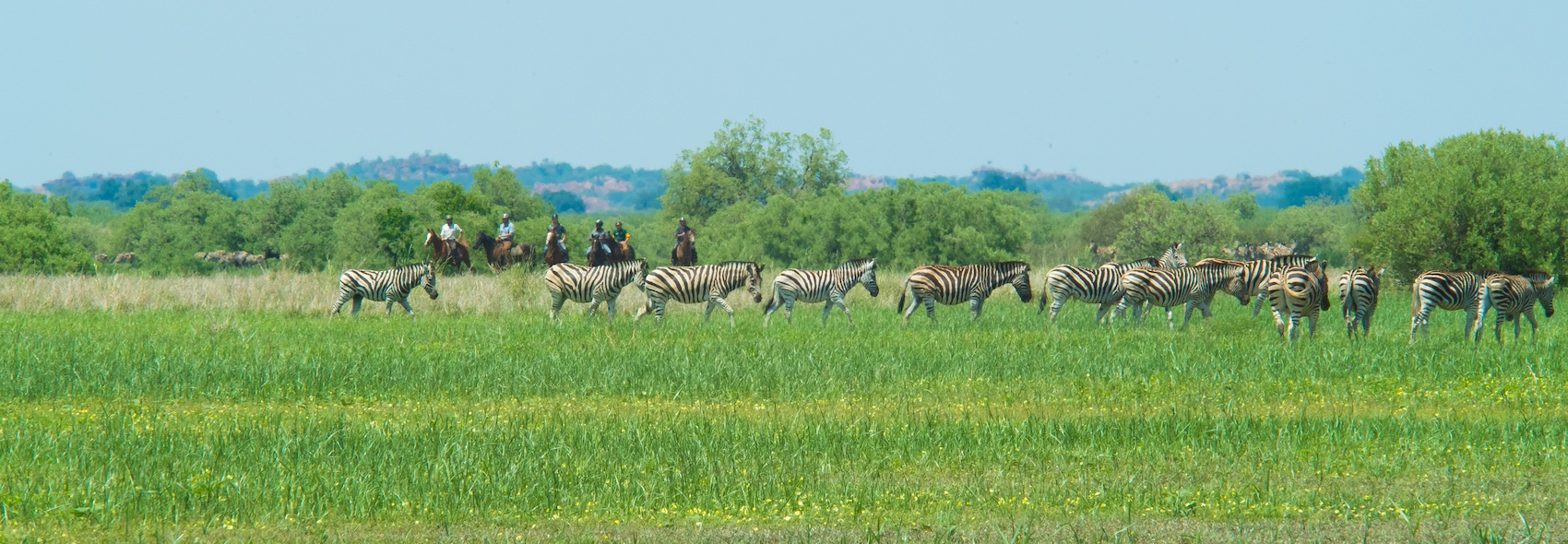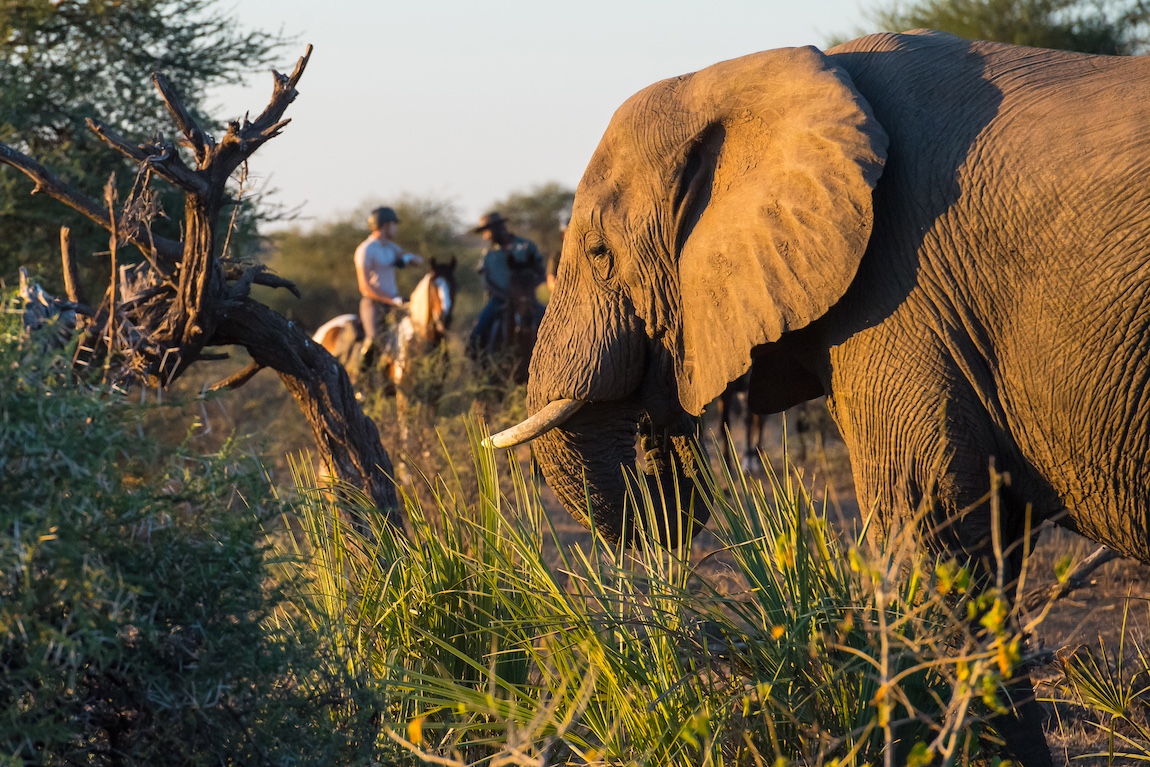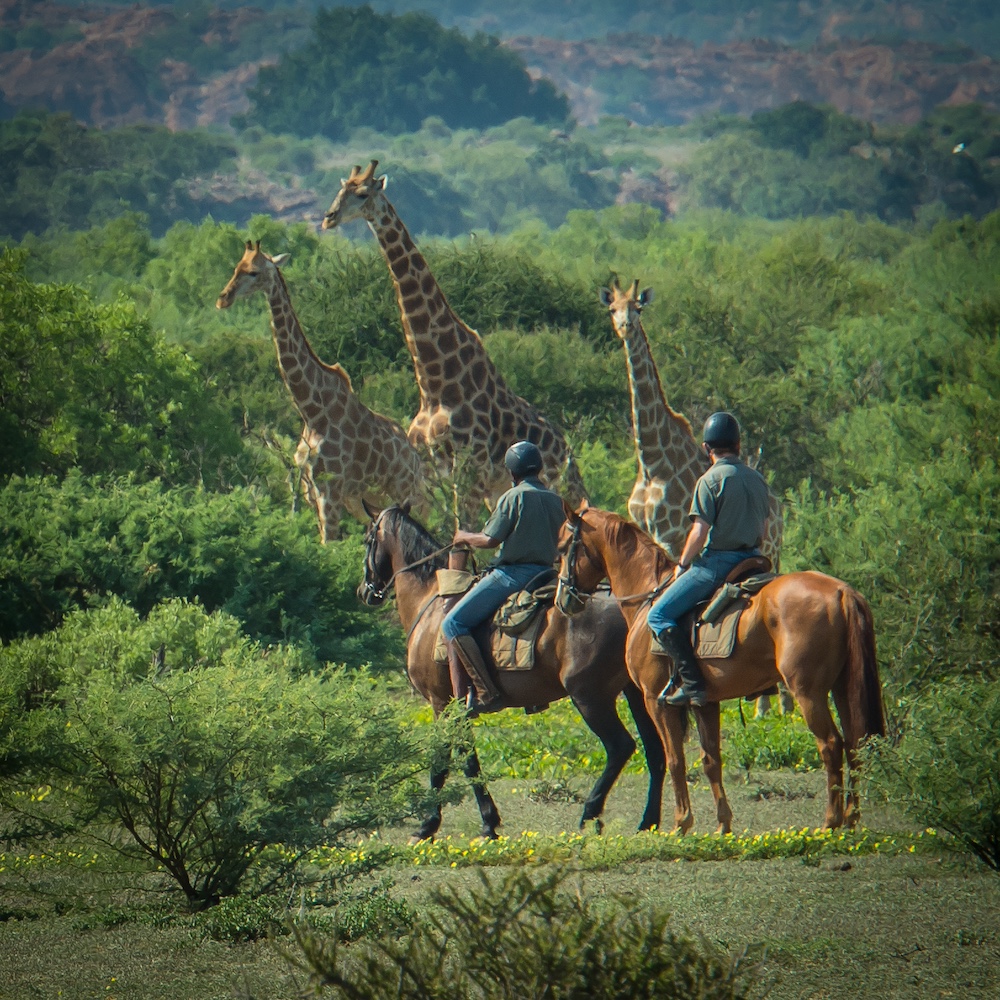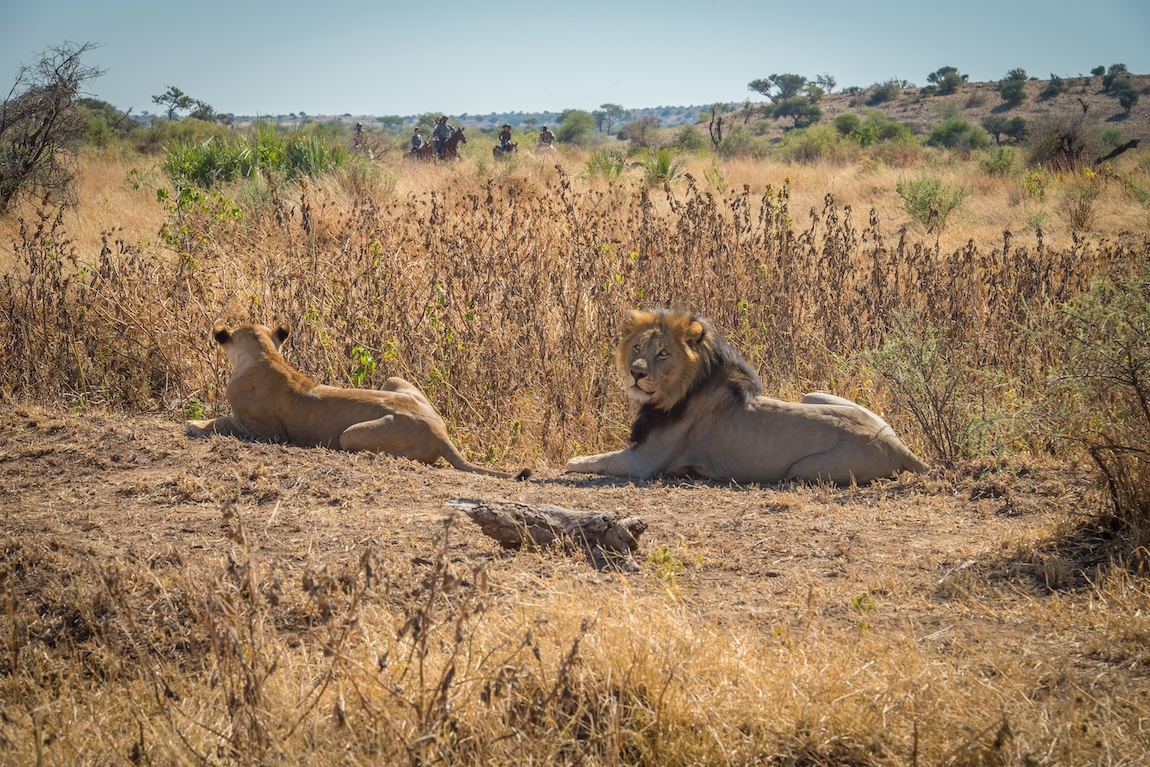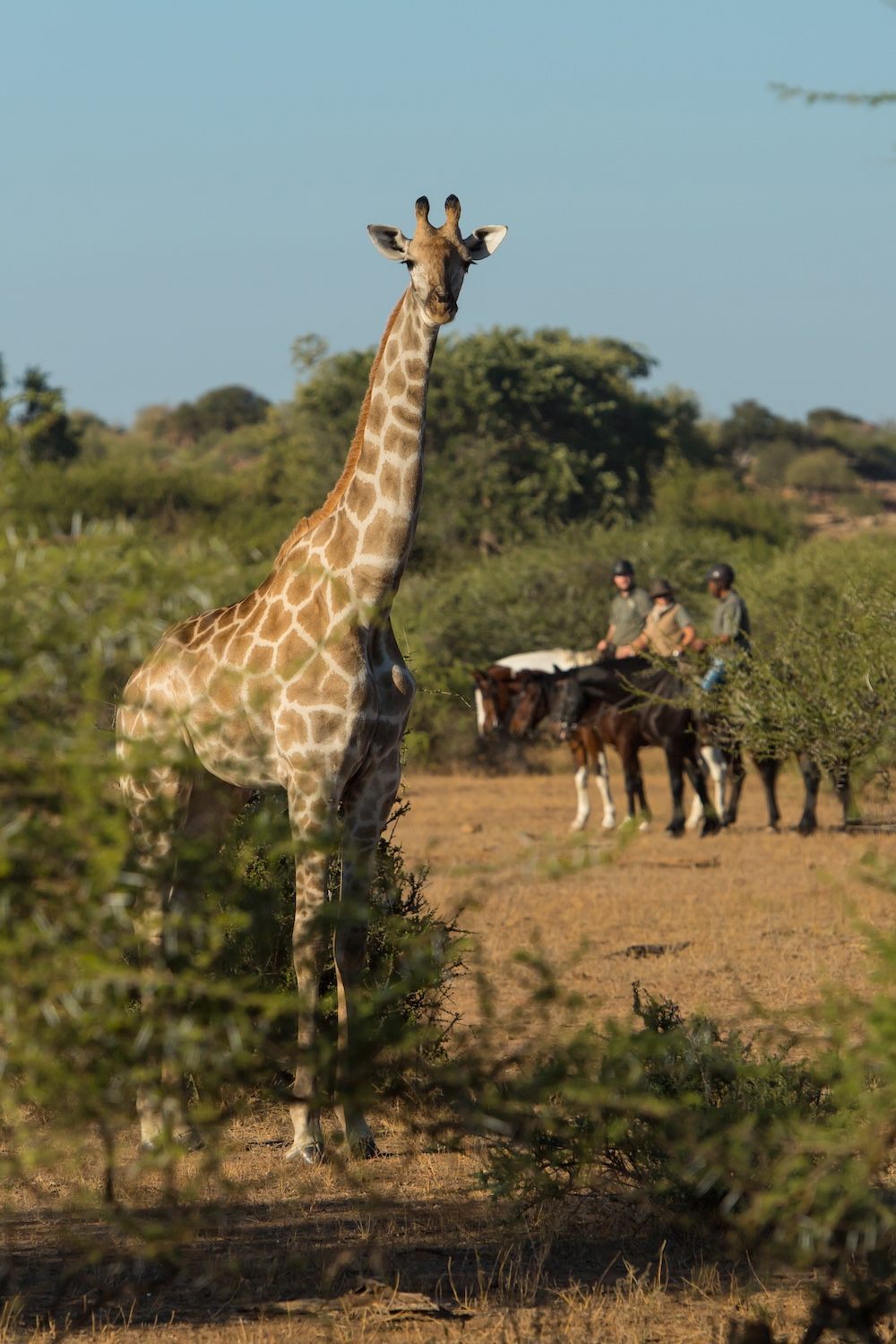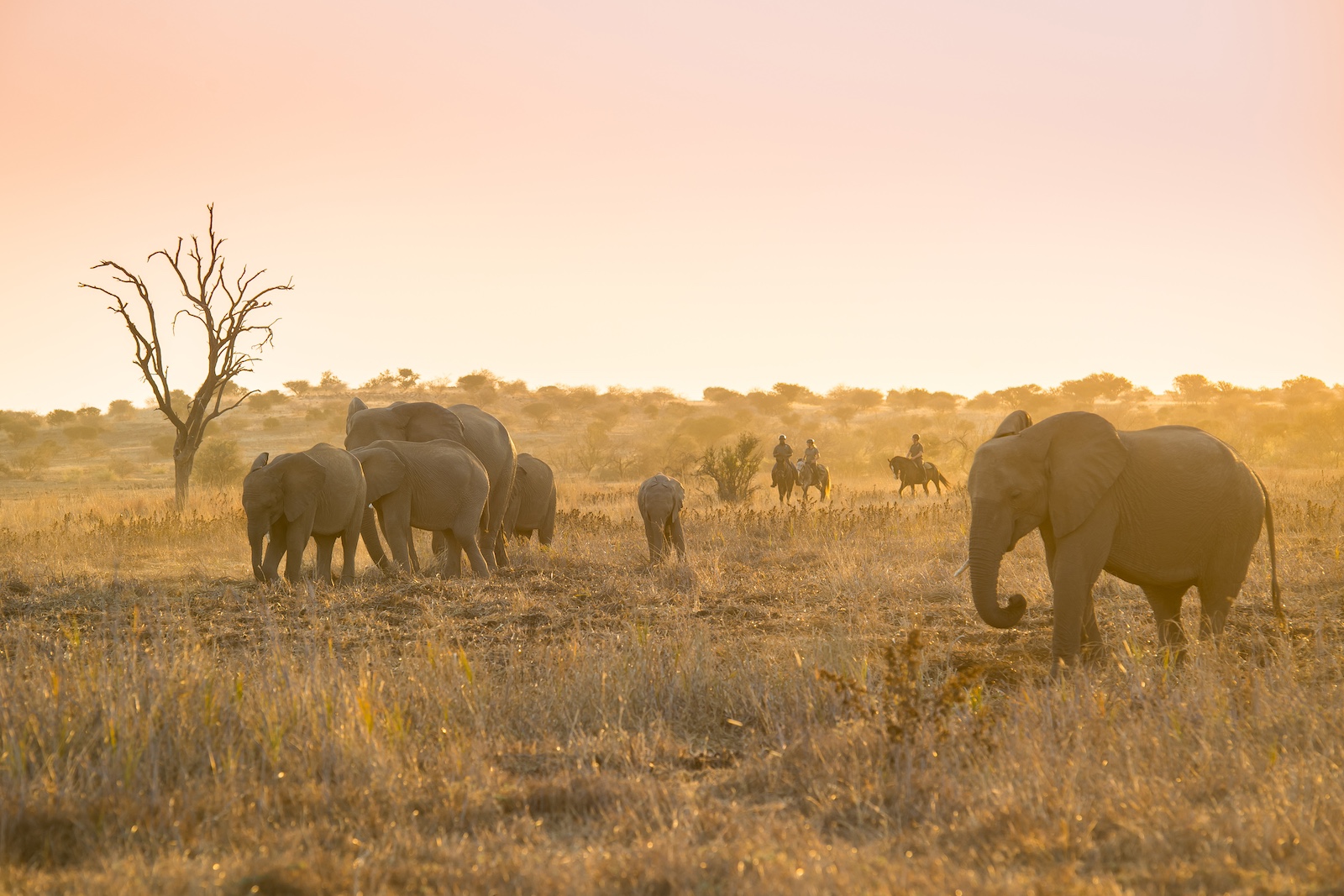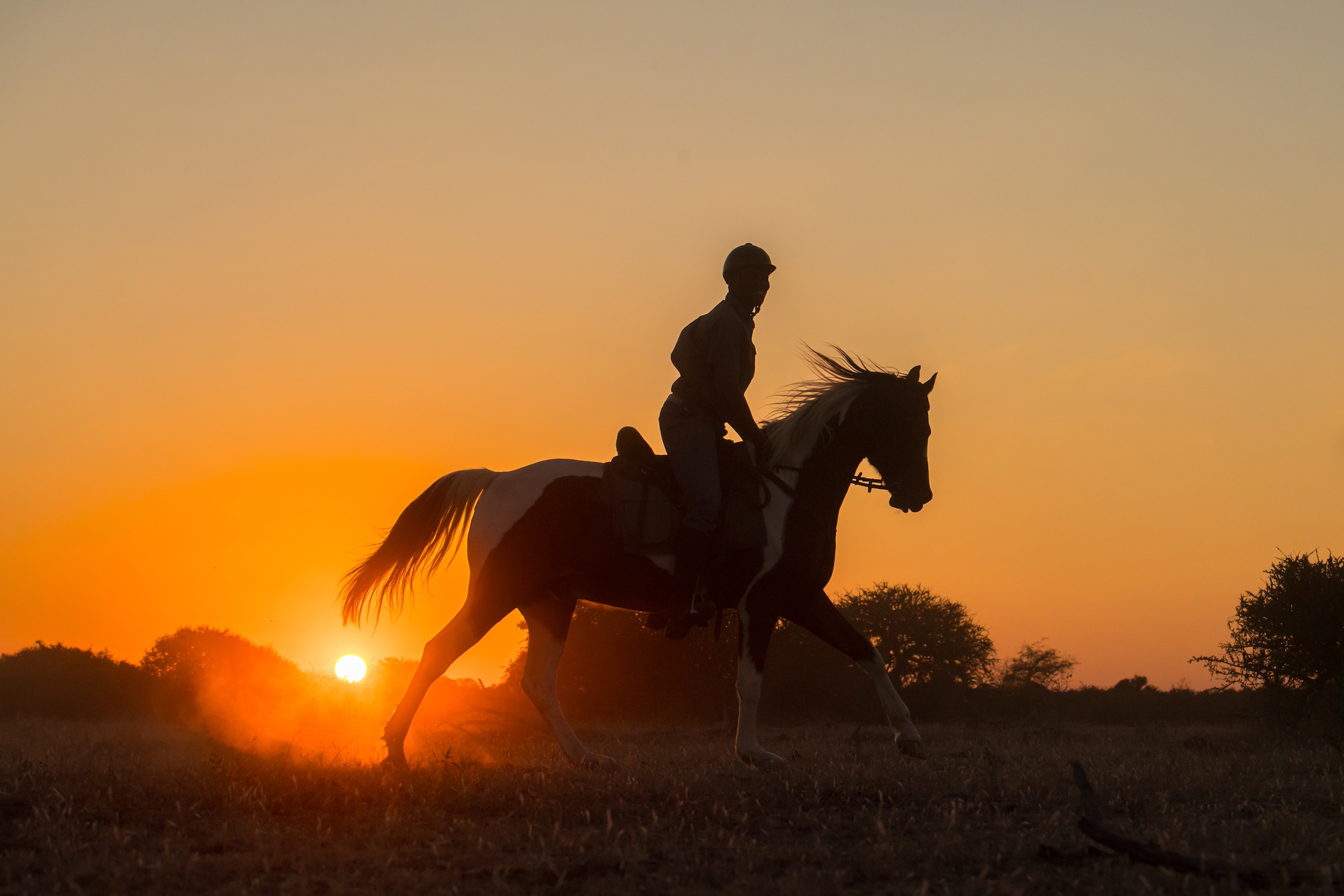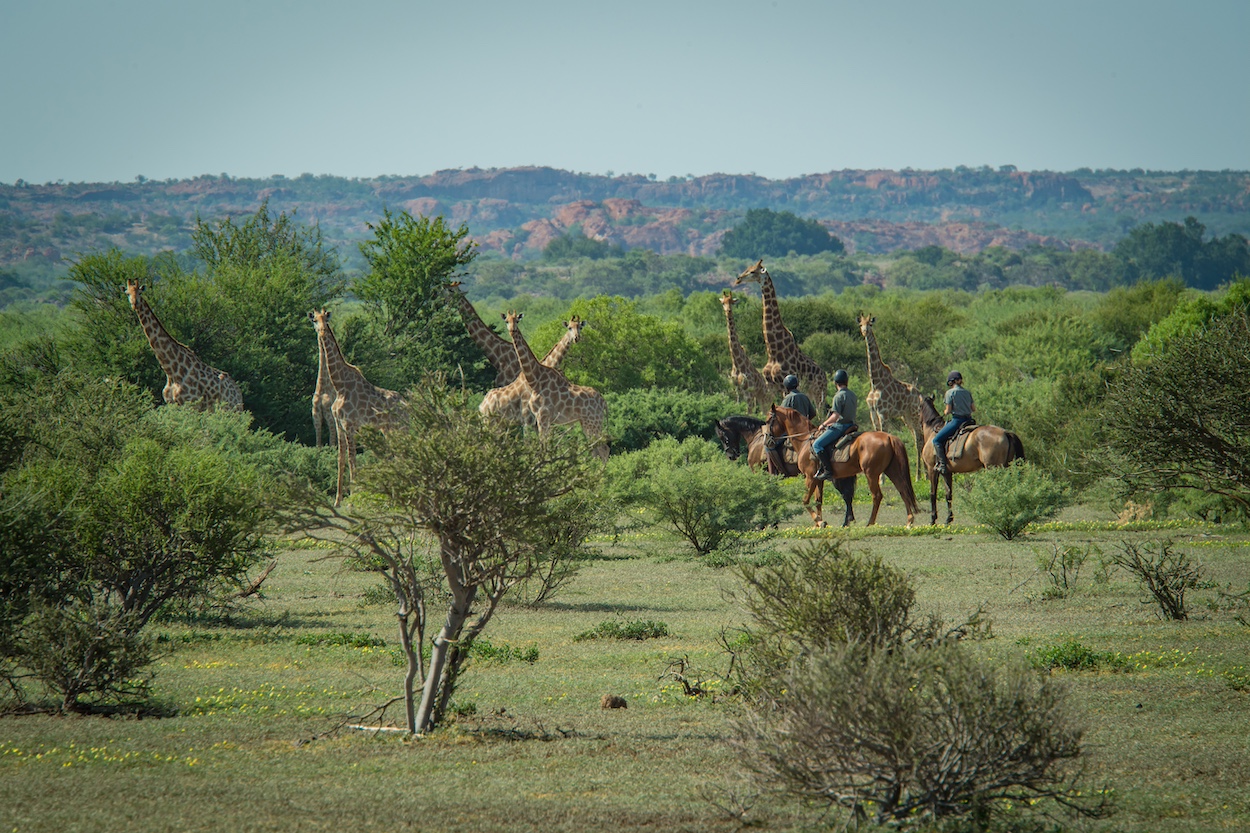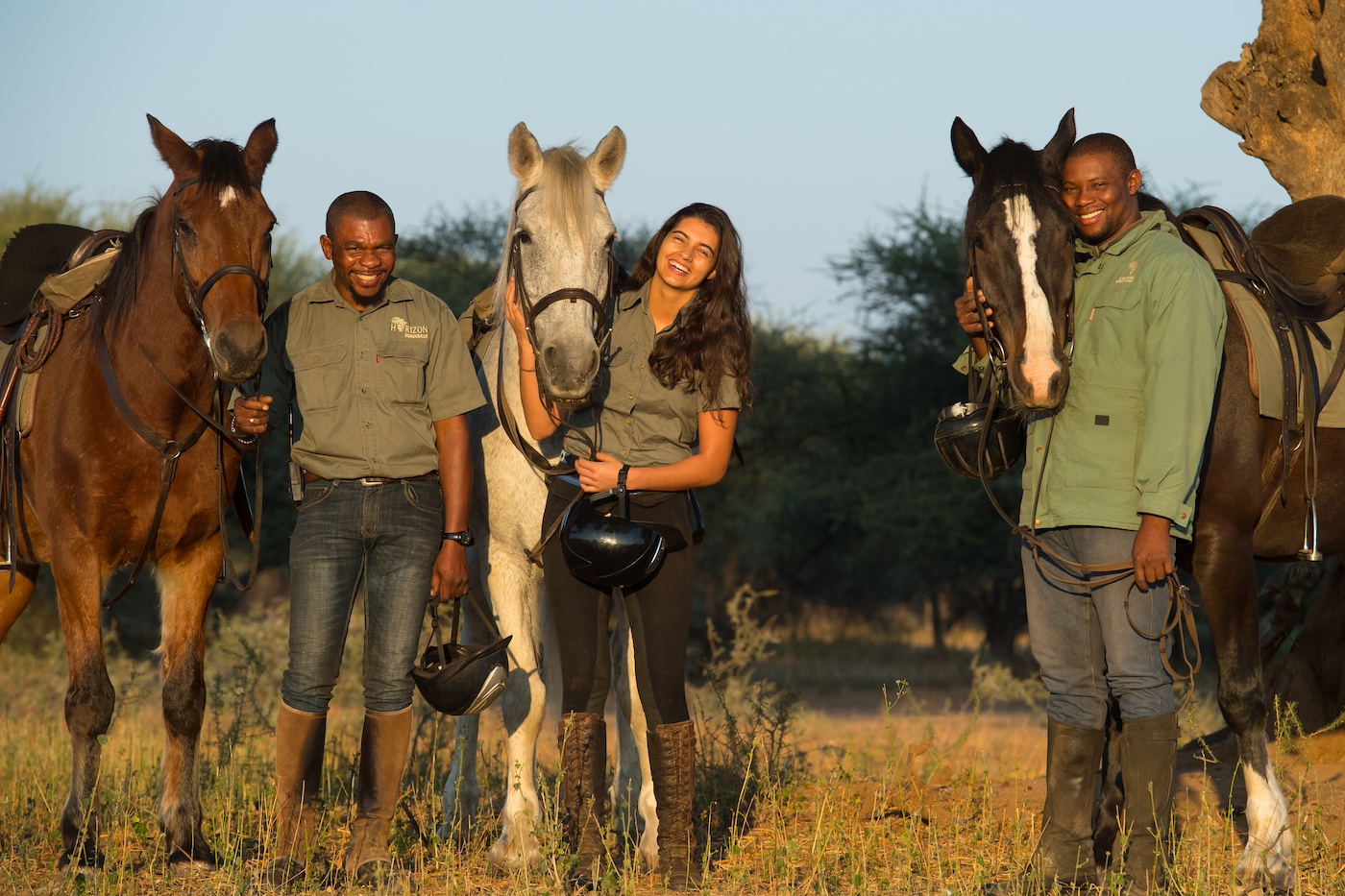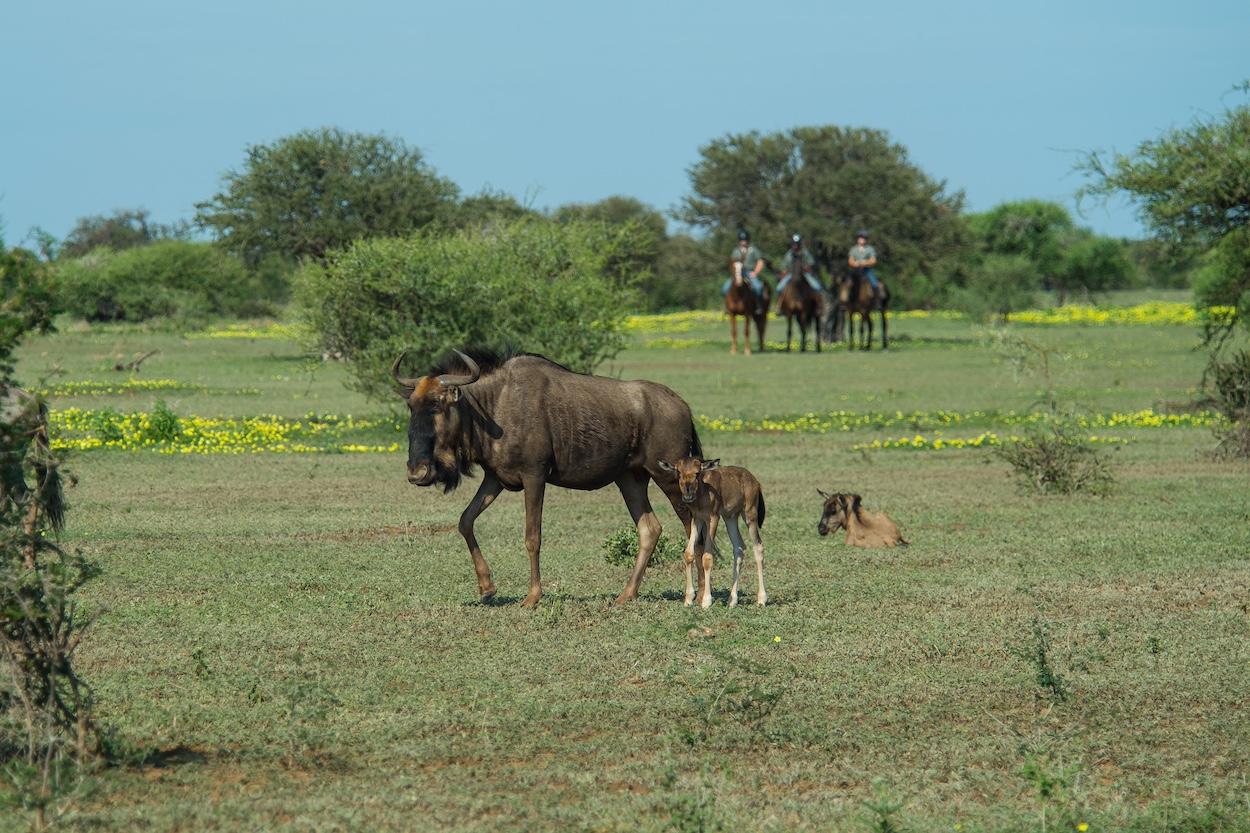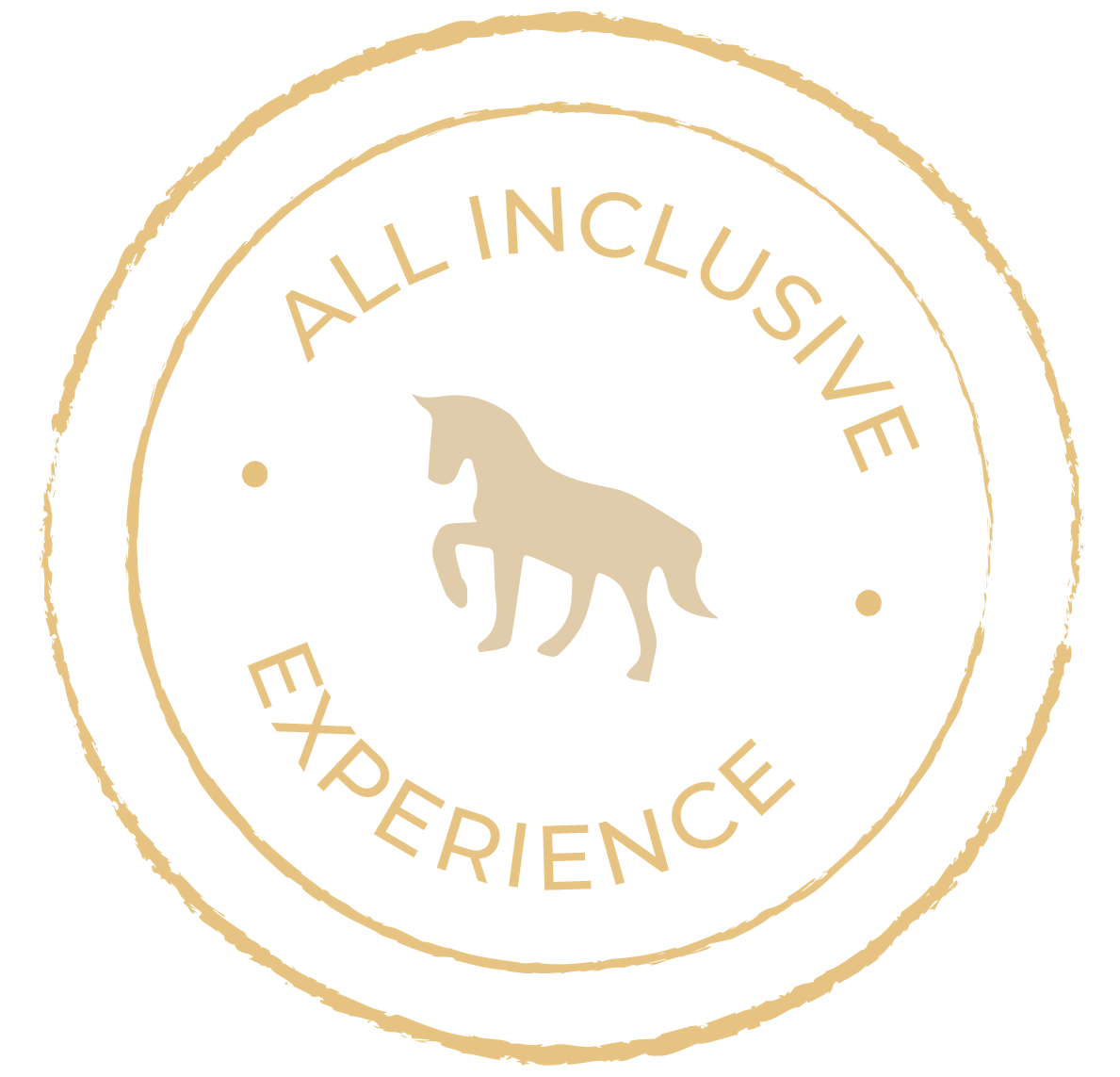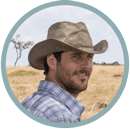Tuli Reserve
The Ancient Botswana
The Ancient Botswana: Why do we need to ride on the most ancient area of Africa.
The ancient Botswana custom, the kgotla, carried out for centuries by local tribes, and the millenary baobab trees, make the trip to the Limpopo plains not just a journey in space, but also in time, to our origins. In this place where ancient kings went hunting, the delta rivers and the dangerous peat bogs are a real challenge. If we approach them by using our skills and fortune, we may be able to see zebras, elephants, primates, and dangerous felines.
- Location
- Botswana
- Duration
- 10 Days / 9 Nights
- Season
- January to December
- Horses
- Warmbloods, Boerpherds and cross breeds
- The Riding
- 4 – 7 hours per day
Day by Day
Day 1. The journey begins.
We land and go with our guide to the stables. We have a light lunch and get to know our horses, who are waiting for us to start the adventure. We make a test ride to corroborate that everything is in place, to enhance the bond between the rider and the horse, and we start our journey. We ride until we reach the first camp. We prepare our minds and bodies for the experiences to come.
Day 2. Tuli, the best way to watch elephants.
We wake up to some coffee or tea in our tents, then get up and have breakfast. We get to our horses and ride towards the forest to follow the river until we reach the rocky hills. Inside Mashatu, Tuli is an area where what we call “the game” becomes splendid: almost for sure we will have the chance to closely see herds of elephants interacting, looking for food, communicating among them, living in that land. Afterwards, we have lunch and take a nap. We take advantage of the afternoon to explore the vast area of Kenda. There are people who say that the Matashu fire burns in a unique way. Maybe because of the wood, of the limpid air, or just because in Africa, all phenomena is involved by a veil of mystery. We make some tests: we have dinner around the firepit under the open sky, with a view to the river.
Day 3. At the heart of Mashatu, baobabs and kgotla.
We have breakfast around a firepit fed with logs. Today’s journey has in store a tour to the heart of Mashatu, to the ancient rocky formations, in the valley of Limpopo. We meet the baobabs trees in person, a magnificent experience not only for the impressive figures, tall and symmetric, but also for the fact that baobabs found on our way while galloping have been living there for thousands of years. They witnessed wild tribes, herds of elephants parading through a natural path for centuries and, up to a point, we are part of this great millenary movie. We also visit areas where kgotla meetings were held in the past - meetings in which tribes deliberated community affairs - and the ancient amphitheatre.
Day 4. Ancestral valleys.
Mapungubwe’s topography is timeless. The oldest tribes of South Africa were settled in its valleys. Kings, for safety matters, settled at top of the hills. With our horses we will be able to see the same wildlife old settlers used to interact with. Are these the same animals? Which is the difference between an antelope of 6 thousand years ago and today’s antelope? Its way of moving around and looking for food? The nature is the same, it is the eyes of the beholder that change, our eyes. Another option is to ride our horses until the Lentswe Le Moriti villa and meet the natives, a group known for their knitting and baskets. At the end of the day, we take a few drinks at the top of the hill and contemplate all the surroundings from atop. This will be a memory you will not be able to forget.
Day 5. Searching for big felines.
After taking a heavy breakfast, we prepare ourselves for the most intense of our cavalcade days. We pierce the density of the Mopane, we head towards the plains close to the Limpopo river, and we may encounter elephants on the way. The Liana camp is settled between Mashatu huge trees and the Liana lake. In the afternoon, those who dare can go out of the reserve into the deep, in search of the big felines of the area: leopards, cheetahs and lions.
Day 6. Towards Okavango.
Our last day in Tuli. We have breakfast around a firepit on the open air. We ride our horses through the Limpopo river and head to the stable, where we say goodbye to our noble horses. We continue our journey by air, on a small plane. A few meters away from the floor, we fly and watch the magic Okavango Delta from above -when did we get used to watch land from above, like God? We reach the Macatoo camp, surrounded by peat bogs. After having lunch under the trees, we are free to ride our horses everywhere we like and for as long as we like -or as long as we can -to bond with the new horse: the land is unstable, filled with water and wet soil, ideal for those who like challenges. In the evening, we take a shower and have a candlelight dinner.
Day 7. Exploring the area.
We wake up to a coffee or tea in bed, then we have homemade breakfast. We take advantage of the morning to stretch our legs and explore the area. Depending on the season, this may imply going through flooded lands or opening our way through bushes while searching for giraffes, antelopes, zebras and God knows what other species: one of Africa’s virtue is that there are still species waiting to be discovered, zones where fauna has not yet been fully registered. We return to have lunch and have some wine. The afternoon cavalcade is more relaxed, the ideal moment to take photographs and conjure up questions. It is not infrequent to see leopards. Flying fauna here is one of the most spectacular of the world. As the sun goes down, it is possible to observe the interaction between hippopotamus and elephants. There is no guarantee that we will have dinner in the same place: it all depends on the circumstances, the weather, the vicissitudes of nature: we are at its mercy.
Day 8. The elusive lechwe and a relaxed sunset.
We can take advantage of the morning and go looking for the exotic and elusive lechwe, take one of our guided tours or fish from a boat. Both riders and those who preferred to walk meet to share some champagne under one of the legendary baobab trees. After lunch, we may enjoy the afternoon by the pool, reading a book -for this special occasion we recommend Hemingway stories, which are set in these surroundings- and organizing photographs. We can go exploring while the sun goes down, time in which the elephants tend to get closer to water. Watching them interact between them as well as with the water, so close to the action, while the sun is setting, is priceless.
Day 9. Leaving the Mopane woods.
Our rhythm increases as we move forward towards the flooded plains, usually disturbing the troops of baboons. We head back to the camp and take the afternoon free, with the chance to rent a helicopter and visit those areas that cannot be reached by foot or on the horse. We finish our day driving the pickup, only using their lights. In the impenetrable darkness, several hyenas will pass us by, barely visible under this dim light. If we spot bright lights resembling fireflies moving along, these are the eyes of galagos, small monkeys that jump from branch to branch. And who knows, maybe the lights catch the sexy and mysterious eyes of a leopard.
Day 10. Hares in the wild nature of Okavango.
In the morning we ride towards the depths of the delta. After lunch, we head with our horses towards the tree house, where we have the option to sleep under the open sky, on the top of the tree, under the lights of the stars. Being alone, free in Okavango’s wild nature, where we are nothing compared with the immensity, is an unforgettable experience that only a few can have.
Day 11. Farewell.
We wake up to the sound of an African fish eagle. We splash the water on the vast open plains, home to the Burchell zebra. Driving can be fast as we approach deep areas full of life: birds, including open beak storks, royal herons, egrets, Egyptian gooses and many more species. We return to Macatoo and have a picnic before going back to the civilization. It is known that freedom is not granted but taken. Nevertheless, at this stage of the journey, we understand that in Africa freedom is granted by animals, vegetation, the water of the delta, the open and limpid night sky. We say goodbye to our horses, we thank them, knowing that we will never be the same again.

